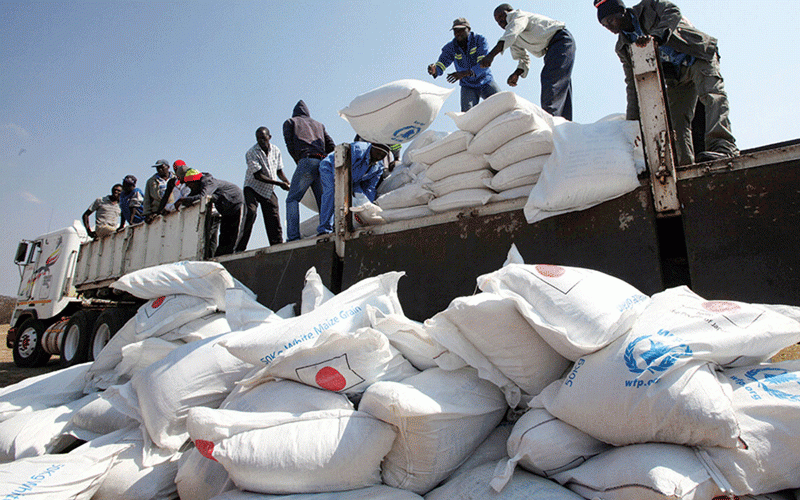
The Public Service, Labour and Social Welfare ministry says it will start issuing cash for cereal aid to vulnerable communities as soon as Treasury releases funds as it works on reducing growing numbers of people affected by the El Nino-induced drought.
The programme, which will run until 2025 is set to benefit all affected families and communities across Zimbabwe while the government has already distributed 36 685 tonnes of grain since May this year.
Addressing journalists in Harare last week, Public Service minister July Moyo said the government would commence the cash for food programme once resources were disbursed.
“A cash-for-cereal programme will be implemented to cover these vulnerable groups once Treasury has availed the resources.
“In the meantime, my ministry is working on the implementation modalities on targeting and registering the eligible people to benefit under this programme.
“Distribution is still ongoing and using the whole of government approach. The ministry is working closely with Treasury, Grain Marketing Board, National Railways of Zimbabwe, RIDA and ZNA to ensure there is smooth implementation of the programme with each entity fulfilling its mandate in this fight against hunger,” he said.
Moyo called for assistance from development partners, civil society organisations, corporates, faith-based organisations and other stakeholders to curb the national disaster.
Meanwhile, at least 35% of the urban population is deemed to be food insecure with the statistics translating to 1,7 million people.
- Mavhunga puts DeMbare into Chibuku quarterfinals
- Bulls to charge into Zimbabwe gold stocks
- Ndiraya concerned as goals dry up
- Letters: How solar power is transforming African farms










